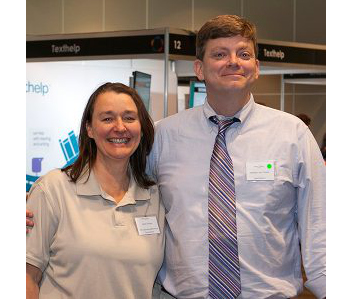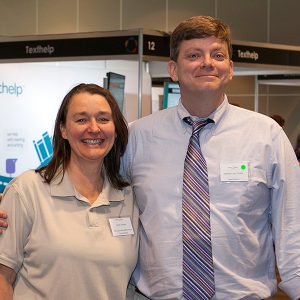There were quite a number of takeaways for visitors to the recent Learning Difference Convention. Among the speakers that pulled in the crowds at the Sydney and Melbourne seminars were Dr Lindsay Peer, Steve Chinn and education consultant William Van Cleeve.
Peer, the former CEO of the British Dyslexia association, spoke about the “hidden” side of dyslexia. This is the fear of many who live with ongoing failure that they are not clever, with lower academic marks convincing them they are worthless, with disastrous consequences.
According to Peer, unless educators are trained to see this and adapt their expectations and their markings, young dyslexic people will constantly receive lower marks and give up trying – regardless of their knowledge base. Peer constantly encounters those who “only write a little, even though they know a lot”. If a dyslexic child is misunderstood or badly handled other problems can occur – those which relate to emotions, behaviour and ultimately in some cases to longer term failure/or mental health issues. “One of the difficulties faced internationally by educators is the lack of knowledge and training as to what dyslexia is, how to identity it and how to address it,” she said.
The question for teachers is:
- Do they know who the dyslexic children are in their classes?
- Do they know when to call in other professionals to access and give input – for example – speech/language therapists and occupational therapists?
Negative trends can be reversed, Peer said, and training needs to be offered to counsellors, psychotherapists and psychologists working with young people.
“With effective, specialist dyslexia training of educators and appropriate intervention starting early, many young people with dyslexia will go on to achieve.”
Another popular speaker at the convention was UK researcher, Steve Chinn, who spoke about a lesser known learning difficulty – dyscalculia – the ability to comprehend numbers. Chinn said this impairment in arithmetical skills concerns mastery of basic computational skills of addition, subtraction, multiplication and division, rather than more abstract skills involving algebra, geometry or calculus. He had these tips:
- Watch and listen to the learner
- Be pro-actively empathetic – especially with factors such as short term memory
- Don’t rely on rote learning
- Manage failures and maintain motivation
- Ensure the pupil experiences some meaningful successes
- Show patterns and guide generalisations
- Revisit everything…again and again
- Know the pre-requisite skills for each new topic and make sure the learner does too
- Explain and show why. Don’t rely on – “Do it like this.”
- Identify and interpret errors. Don’t just say, “Wrong.”
In his seminars, ‘Writing Matters’, William Van Cleeve introduced fun multi-sensory techniques combined with an interactive approach to teach spelling and handwriting. “The research is overwhelming, the bottom line is manuscript typewriting improves reading, typing does not,” he told F2L. “Cursive writing improves spelling, typing does not. If you don’t get the handwriting piece then you are severely and negatively impacting the ability to read and spell. There is overwhelming research in support of this.”
Learning Difference Convention Founder, Jillian Zocher with US educator, William Van Cleave


